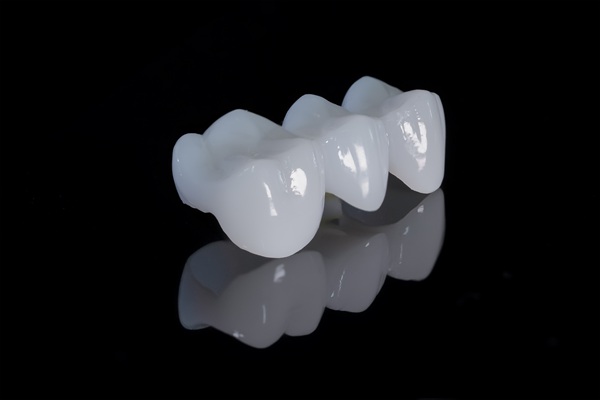 Wondering when dental crowns are recommended? Read on to learn more about this dental restoration. Healthy teeth are crucial components of one's body and play a significant role in overall health. However, many individuals either lack access to dental care or postpone appointments, believing they can address oral health issues later. This delay can lead to more extensive dental work being required later on, such as needing a dental crown instead of a simple filling.
Wondering when dental crowns are recommended? Read on to learn more about this dental restoration. Healthy teeth are crucial components of one's body and play a significant role in overall health. However, many individuals either lack access to dental care or postpone appointments, believing they can address oral health issues later. This delay can lead to more extensive dental work being required later on, such as needing a dental crown instead of a simple filling.
Dentists offer a variety of restorative dentistry services to repair smiles. This article focuses on dental crowns as a restoration option.
4 Situations in which dental crowns may be necessary
Dental crowns are among the most common restorative dental procedures. These versatile solutions can address various tooth problems, providing a long-lasting solution.
In the past, crowns were typically made of metal or porcelain fused to metal. However, modern crowns are often crafted from porcelain, zirconia, or composite materials that can be designed to match the sheen and color of natural teeth. Many patients prefer this option as it eliminates the need for visible metal in their mouths.
There are common scenarios where a dental crown might be necessary, ranging from minor issues to more extensive dental work.
1. Chipped or cracked tooth
A chipped or cracked tooth can be easily restored by covering the surface with a dental crown, custom-made to fit snugly. The crown is created from a mold of the teeth, ensuring it bonds tightly to the tooth and maintains an even bite for proper chewing and speech.
2. Damaged or decaying tooth
When a tooth has a cavity too deep or wide for a simple filling, or if it has broken off above the gum line, a crown can restore functionality and improve the bite. It is essential to have a crown made and installed as soon as possible to prevent further decay, damage, or infection.
3. Following a root canal
During a root canal procedure, the tooth's inner pulp is removed and replaced with a sterile material. Afterward, a crown is placed over the treated tooth to ensure the root canal remains sealed, preventing bacteria from reentering the canal and providing strength to the weakened tooth.
4. Dental implant support
A dental crown may also be necessary to complete the installation of a dental implant. Dental implants are designed to replace missing teeth with a titanium post inserted into the jawbone and a crown placed to fill the gap. Patients can typically enjoy complete dental functions once the dentist has placed a dental crown over the implant.
The bottom line
Dental crowns can typically last a decade or more and can be easily replaced if damaged. With a dental crown, a patient can usually restore their damaged tooth's original function and appearance. To learn more about dental crowns and whether they might be suitable for you, contact our dental office today to schedule a consultation.
Request an appointment or call Dental Partners Fountain City at 865-672-6525 for an appointment in our Knoxville office.
Related Posts
There are many ways to keep your teeth bright, white, and healthy. However, you may see unfamiliar stains or shades on your teeth, making them appear gray. Fortunately, a general dentist can evaluate gray teeth by identifying the root cause of the change.It is common for teeth to change color, and it does not always…
Dental implants are the ideal solution for anyone looking to replace damaged or missing teeth. They are the top choice for patients who want the next best thing to real teeth and provide a permanent solution that can last a lifetime.Dental implants can be used to replace one or multiple missing teeth. They provide excellent…
Most everyone is familiar with the fact that dentists use dental fillings to treat cavities. What not everyone is aware of, however, is why dentists need to treat cavities with fillings or why teeth decay the way they do in the first place. We all want to keep our teeth healthy, and fillings have been…


